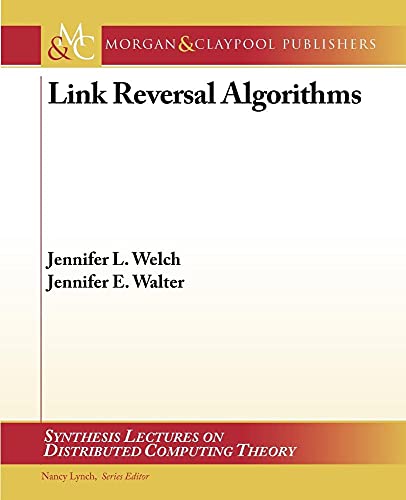Items related to Link Reversal Algorithms (Synthesis Lectures on Distributed...

This monograph presents, in a tutorial way, a representative sampling of the work on link-reversal-based distributed algorithms. The algorithms considered solve routing, leader election, mutual exclusion, distributed queueing, scheduling, and resource allocation. The algorithms can be roughly divided into two types, those that assume a more abstract graph model of the networks, and those that take into account more realistic details of the system. In particular, these more realistic details include the communication between nodes, which may be through asynchronous message passing, and possible changes in the graph, for instance, due to movement of the nodes.
We have not attempted to provide a comprehensive survey of all the literature on these topics. Instead, we have focused in depth on a smaller number of fundamental papers, whose common thread is that link reversal provides a way for nodes in the system to observe their local neighborhoods, take only local actions, and yet cause global problems to be solved. We conjecture that future interesting uses of link reversal are yet to be discovered.
Table of Contents: Introduction / Routing in a Graph: Correctness / Routing in a Graph: Complexity / Routing and Leader Election in a Distributed System / Mutual Exclusion in a Distributed System / Distributed Queueing / Scheduling in a Graph / Resource Allocation in a Distributed System / Conclusion
"synopsis" may belong to another edition of this title.
- PublisherMorgan & Claypool Publishers
- Publication date2011
- ISBN 10 1608450414
- ISBN 13 9781608450411
- BindingPaperback
- Number of pages104
Shipping:
£ 3.15
Within U.S.A.
Top Search Results from the AbeBooks Marketplace
Link Reversal Algorithms
Book Description Soft Cover. Condition: Good. Ex-library with the usual features. Library label on front cover. The interior is clean and tight. Binding is good. Cover shows very light wear. Ex-Library. Seller Inventory # 121982

